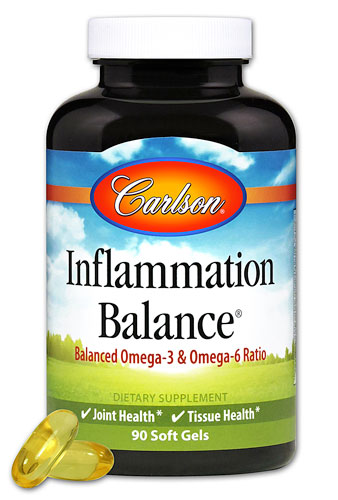Watch out if you have an argument with your spouse after getting a poor night's sleep.
Sleep-deprived couples who bicker are more likely to experience higher levels of internal inflammation, according to a study from the Ohio State University Institute for Behavioral Medicine Research.
The researchers note that the type of inflammation they discovered -- which was revealed by key markers in blood samples -- has been associated with increased risk of diseases such as arthritis, cardiovascular disease and diabetes.
Marital strife is not the only trigger for potentially dangerous inflammation. Research has linked all types of psychological stress to increased inflammation, and resulting health problems.
"Chronic inflammation is a major risk factor for cardiovascular disease," says Peggy Zoccola, an associate professor in the Department of Psychology at Ohio University in Athens.
She notes that inflammation also has been associated with depression and autoimmune diseases, as well as diabetes.
How stress leads to inflammation
When we are under psychological stress -- such as when we feel challenged or threatened -- the body releases stress hormones such as epinephrine and norepinephrine as part of the classic "fight-or-flight" response. This is not necessarily bad.
"Often it is helpful to exhibit a stress response," Zoccola says.
For example, an increase in heart rate and the body’s release of stress hormones can help us focus on the task at hand, and provide us with the energy to do so, Zoccola says.
However, stress hormones also stimulate the production of pro-inflammatory signaling molecules.
If we are under stress frequently -- or perhaps even if we simply dwell on a stressor after it ends -- it may cause the body to trigger or maintain stress-responsive systems over longer periods of time.
"If these changes persist for too long, they may negatively impact our health," Zoccola says.
Stress also can wreak havoc with the hormone cortisol, which helps control the inflammatory response. A 2012 Carnegie Mellon University study found that when people are stressed, it dampens cortisol's ability to regulate inflammation.
Preventing stress from causing inflammation
Taming the stress in your life is not always easy. "Simply telling a person to 'not stress' or to stop worrying about something doesn't work," Zoccola says.
However, there are steps you can take to mitigate the threat that stress poses to your health. The American Psychological Association offers several tips for reducing stress. They include:
- Meditating on a regular basis
- Talking about your problems with family and friends
- Eating well and drinking plenty of water
- Getting enough sleep
- Taking regular vacations or other breaks from work
- Engaging in relaxing hobbies, such as gardening, playing music and creating art
Zoccola also offers her own suggestions.
"Physical exercise or other healthy distractions – (such as) fun activities with friends or family -- can help take your mind off the stressful situation and may boost your mood, Zoccola says.
Taking time to journal or expressively write about previous episodes of stress also can be helpful.
"In addition to getting your emotions out, writing about distressing events can help to create a story and find meaning in an event," Zoccola says.




